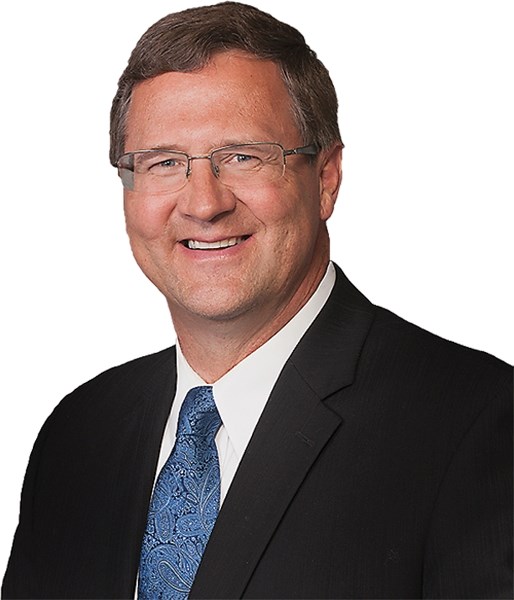BARRHEAD – Dismissing criticisms that this was a “pre-election budget” aimed at keeping the United Conservative Party (UCP) in power, Athabasca-Barrhead-Westlock MLA Glenn van Dijken says he would argue instead that Budget 2023 is addressing critical issues facing Albertans, such as inflationary costs and a shortage of health care workers in rural facilities.
“I for one am very much supportive of all the program spending that is being identified in this budget,” he said, in an interview following the Feb. 28 release of the provincial budget.
“I am very thankful for the industry that we have within this province, whether that’s agriculture, forestry, energy … All of that feeds into the ability to actually provide the services that Albertans truly need.”
Budget 2023 includes $70.7 billion in forecasted revenue, $18.4 billion of which is non-renewable resource revenue. Notably, that is less than the $27.5 billion originally forecast for 2022-2023, but still the second-highest resource revenue recorded by the Alberta government.
Expenses total $68.28 billion, which is $1.7 billion more than the 2022-2023 forecast. The net result will be a surplus of $2.4 billion by March 2024, which is noticeably smaller than the current surplus of around $10.4 billion.
Finance Minister Travis Toews also indicated that new legislation will be coming this spring to introduce a new fiscal framework that will require future provincial governments to post balanced budgets unless certain conditions are met, and to use surpluses to pay down debt.
van Dijken highlighted the fiscal framework as an example of the good fiscal planning that allowed the UCP to pay down more than $13 billion in debt this year, saving Albertans millions on interest costs and allowing more money to be put into programming.
“I’m excited about the years coming up. We are leading the country in growth again, and in an inflationary period, it is very critical to be growing.”
Local benefits
Looking at more specific items within the budget that could benefit the riding, Budget 2023 includes $158 million more this year to attract, recruit and retain more health care workers across the province, particularly in rural centres.
In addition to slating the modernization and right-sizing of Barrhead Composite High School for design funding – see more about on Page 1 – van Dijken said the Fort Assiniboine bridge has been identified within the Alberta Transportation Capital Plan for further planning.
He suggested this was part of design work being done on Highways 33 and 661, adding that the Fort Assiniboine bridge has been a subject of discussion between himself and Woodlands County for at least several years.
“Once we figure out how to proceed with the project, then design work starts,” he said.
van Dijken also highlighted the introduction of a new non-refundable tax credit for agriculture-processing and manufacturing investment.
He said this tax credit is the result of seeing Alberta lose large agricultural processing facilities to Saskatchewan based off of their large incentive programs.
“I’m hopeful that this offering will help to keep us competitive with what Saskatchewan has introduced in their investment program.”
van Dijken also highlighted the raft of affordability programs in the budget, such as the ongoing electricity rebate program, an additional $20 million for food banks and civil service organizations, and a six per cent increase to the Alberta Senior’s Benefit and the Assured Income for the Severely Handicapped (AISH) payment.
“The government recognizes the challenges (facing Albertans), and we’re just happy we’re in a position to actually try and help with that,” he said.
In particular, he pointed to the fuel tax relief that the province is keeping in place until June, which he noted is saving Albertans 13.7 cents per litre whenever they fill up.
“Rural Albertans are the ones forced to drive longer distances. I think that’s something that’s quietly helping out our families in rural Alberta,” he said.
van Dijken also brought up an increase of about $13 million in funding to the Community Facility Enhancement Program, which provides matching grants to community associations based on priorities they identify for their communities.
He said he believed the program was a wonderful way to address recreational needs in communities without government interference in the decision-making process. Also, it incentives communities to raise some funds for their own facilities instead of just getting a hand-out, he added.
“All of these kinds of programs are important to our rural communities, and we are seeing an uptick in funding for that program,” van Dijken said.
Budget criticisms
In the wake of the budget’s release, a major criticism launched at the UCP government was that they were spending out of line with previous fiscal projections to gain an edge in the upcoming election.
“If people think that this is all of a sudden an election budget on a spending spree, I would argue that it’s addressing critical needs within our system,” he said, adding that the province was only in a position to address those needs due to good planning.
He also answered the criticism that the province avoided allocating funding for the establishment of an Alberta Police Service due to its mixed reception.
van Dijken said the establishment of a provincial police force was not definite, though it was the “likely plan for the future” based on what they were hearing from the federal government.
“In the last year, I’ve heard differing opinions within our constituency (on the Alberta Police Service), and the government has heard differing opinions throughout Alberta,” he said, pointing to Grande Prairie requesting the province’s support in establishing local policing.


.jpg;w=120;h=80;mode=crop)
